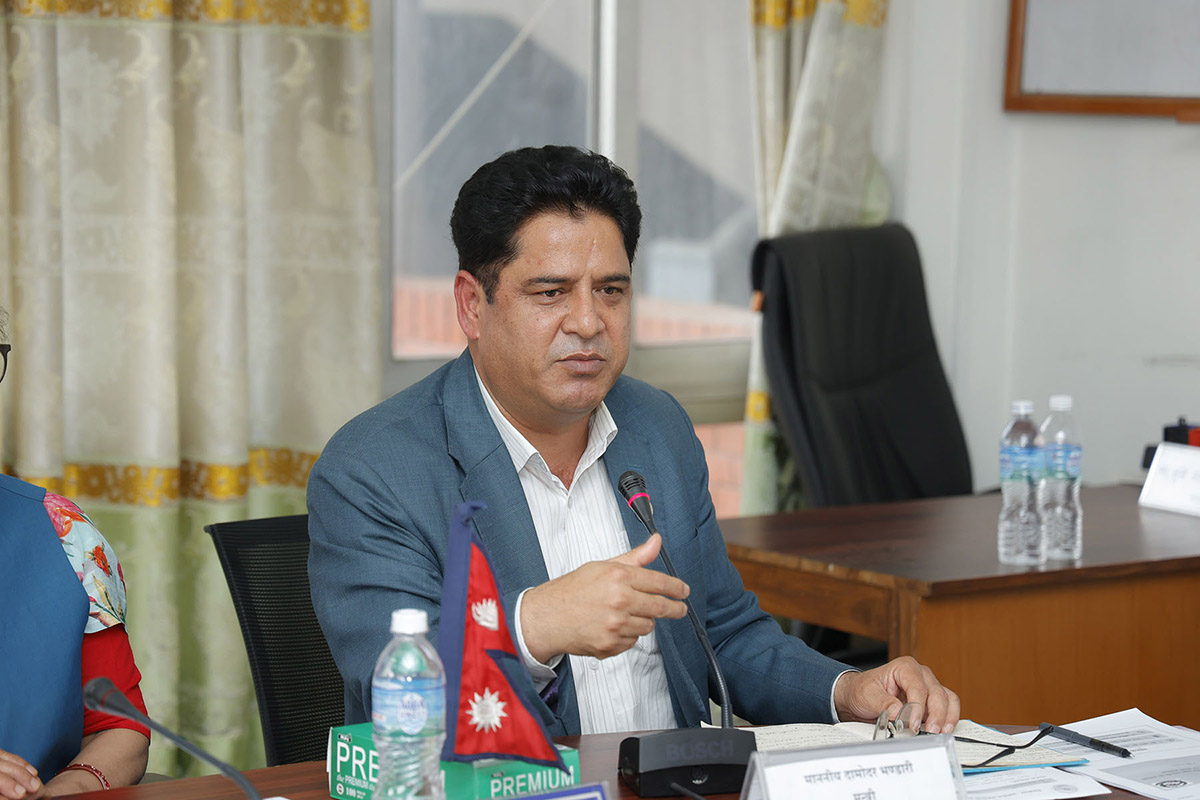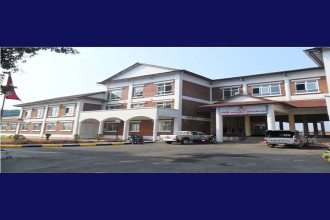
KATHMANDU: Minister for Industries, Commerce and Supplies, Damodar Bhandari, has said Nepal lacks adequate funds to graduate from a Least Developed Country (LDC) to a developing nation by 2026.
Speaking at the meeting of the Committee on Development, Economic Affairs and Good Governance under the National Assembly on Sunday, Minister Bhandari stated that implementing the Smooth Transition Strategy remains difficult due to budget constraints and inadequate coordination among government agencies.
"Nepal requires over Rs 4 billion to carry out preparatory activities and action plans for graduating from LDC status. However, the budget for current fiscal year has allocated only Rs 40 million," he said.
Bhandari expressed concerns, saying, "It will be difficult for us to achieve the desired outcome with this amount."
Nepal was listed as an LDC in 1971, and to ensure a smooth transition to developing country status, the government introduced the Smooth Transition Strategy.
At Sunday's meeting, Bhandari urged all relevant agencies to make maximum efforts to implement the strategy. Emphasising the need to boost production and productivity, he said economic challenges would persist unless the contribution of industries and manufacturing to the country's Gross Domestic Product (GDP) increases.
The meeting discussed the potential negative impacts and challenges Nepal would face during and after graduation. Officials noted that Nepal will lose key international trade and development aid benefits available under its LDC status.
It was predicted that the country's export trade may decline by four per cent due to the loss of LDC-specific trade exemptions. A decrease in exports could hinder Nepal's economic growth and negatively affect up to 10,500 workers employed in industries such as garment, carpet and pashmina.
Nepal will no longer receive preferential treatment for services and service suppliers under the World Trade Organization (WTO), including duty-free and quota-free provisions. Export subsidies for agricultural products will be restricted, while those for non-agricultural goods will be significantly reduced after graduation.
To retain some benefits, Nepal is engaging in discussions with the European Union, Turkey and other nations regarding the continuation of trade facilities, according to Govinda Bahadur Karki, Secretary at the Ministry of Industry, Commerce and Supplies (MoICS).
Meanwhile, government-provided facilities will continue. Internal trade subsidies for agricultural products will remain unchanged, and subsidies for non-agricultural local products will not be removed.
Nepal will also face reductions in development assistance from bilateral and multilateral donors. Major agencies such as the Asian Development Bank and the World Bank are expected to reduce aid and related benefits.
Upon graduation, Nepal must comply with liberalisation commitments required of developing nations. As a low-income country, Nepal will no longer be eligible for concessional loans.
Development organisations such as the UNDP and UNICEF allocate special aid to LDCs, but Nepal will no longer qualify for this support.
Additionally, Nepal will lose intellectual property flexibilities under the Agreement on Trade-Related Aspects of Intellectual Property Rights (TRIPS), affecting the pharmaceutical industry. The transition may also create difficulties for technology transfer.
Nevertheless, climate-related funding from the United Nations Framework Convention on Climate Change will continue, the meeting concluded.
By RSS





-1768813190.jpeg)
-1768806540.jpeg)